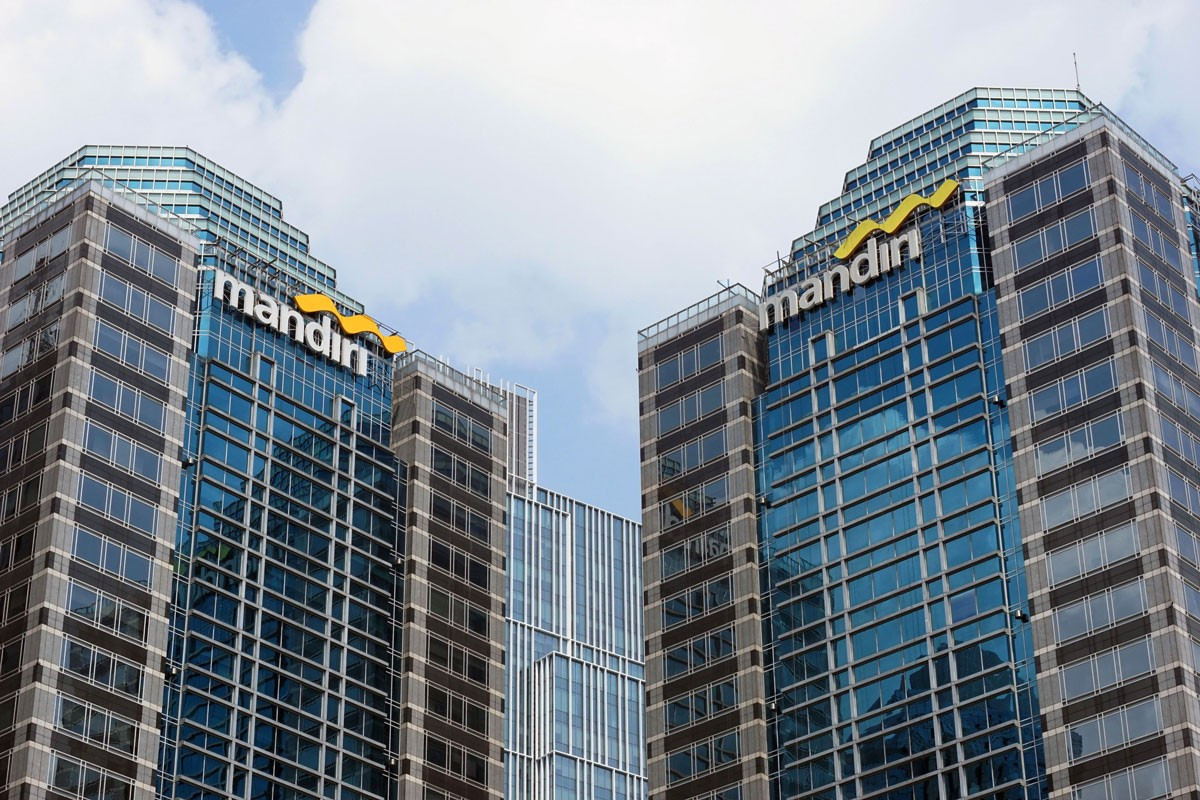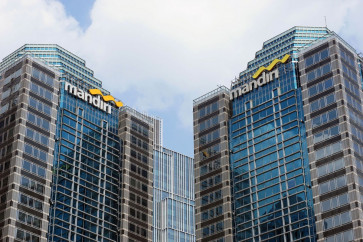Popular Reads
Top Results
Can't find what you're looking for?
View all search resultsPopular Reads
Top Results
Can't find what you're looking for?
View all search resultsAnalysis: Bank Mandiri reshuffles leadership amid Himbara-wide downturn
Change text size
Gift Premium Articles
to Anyone
S
tate-owned lender Bank Mandiri recently announced a major leadership shake-up to restructure both the Board of Commissioners (BoC) and Board of Directors (BoD). The changes come as lenders grouped in the Association of State-Owned Banks (Himbara) face mounting pressure from slowing financial performance, worsened by the banking industry's loan disbursement slowdown and increasing burdens from government-mandated programs.
At an extraordinary general shareholders meeting (RUPSLB) on Aug. 4, Bank Mandiri promoted former deputy president director Riduan to replace Darmawan Junaidi as president director and appointed Henry Panjaitan, formerly business director at PT Jaminan Kredit Indonesia (Jamkrindo), to replace Riduan.
Other key changes included the appointment of former information technology director Timothy Utama as operations director to replace Toni E.B. Subari, with senior executive vice president of digital banking Sunarto Xie stepping into Timothy's prior role. Meanwhile, Bank Mandiri recalled Zulkifli Zaini, who was president director in 2010-2013, to serve as independent commissioner.
This marks Bank Mandiri’s second RUPSLB this year, with the first held in March. The latest reshuffle means Darmawan’s second five-year term as president director lasted less than five months, making it one of the shortest tenures in the bank’s recent history. The abrupt leadership change also signals growing dissatisfaction with the bank’s performance in the first half (H1) of 2025, mirroring broader concerns across Himbara.
Bank Negara Indonesia (BNI) and Bank Rakyat Indonesia (BRI) both recorded year-on-year (yoy) declines in net income in H1 2025, respectively falling 5.6 percent to Rp 10.1 trillion (US$620 million)) and 11.5 percent to Rp 26.27 trillion, in a continuation of a downward trend over the past two years. Himbara’s collective net income growth plummeted from 22.86 percent yoy in 2023 to just 2.08 percent in 2024, and then shrank 11.26 percent yoy to Rp 31.34 trillion in the first quarter (Q1) of 2025.
According to data from the Financial Services Authority (OJK), undisbursed loans at Himbara banks rose 15.64 percent yoy to Rp 470.39 trillion as of May 2025, while disbursed loan growth slowed to 8.26 percent yoy in the same period to Rp 3.69 quadrillion. This decline was slightly below the industry average of 8.43 percent, signaling cooling credit expansion. Meanwhile, industry-wide loan growth declined this year from 10.27 percent in January to 7.77 percent in June, the slowest pace since March 2022.
Although gross domestic product growth accelerated to 5.12 percent in Q2 2025, economists have cast doubt on the figure’s credibility, saying that underlying indicators still pointed to a modest recovery at best. Despite the downturn, some private banks have continued to outperform Himbara’s performance in H1 2025. Major private lender Bank Central Asia (BCA) posted an 8 percent net income growth to Rp 29 trillion in H1 2025, while Bank Permata recorded a 7.6 percent increase to Rp 1.6 trillion in the first half.



















